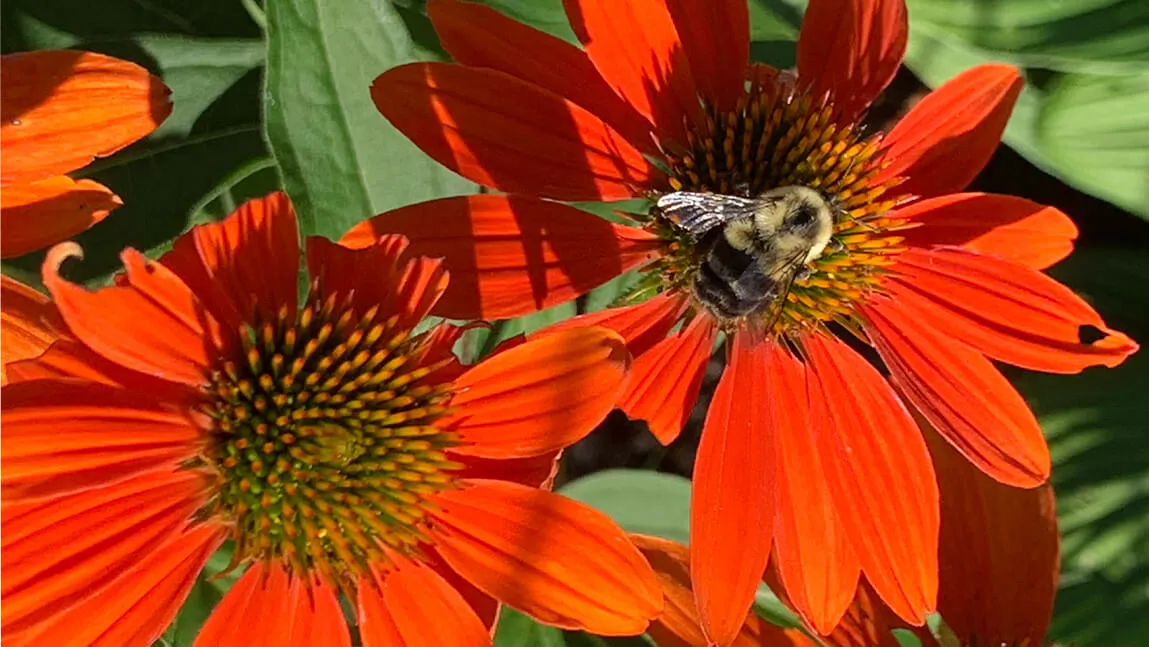Burlington--Pollinator-friendly gardens not only provide a source of nectar and pollen for bees, butterflies and other beneficial insects but can add beauty and diversity to a home landscape.
To help gardeners and homeowners understand the role of pollinators in food production and provide strategies for creating pollinator habitat, a group of University of Vermont (UVM) Extension Master Gardener volunteers have developed Gardening for Pollinators and Beneficial Insects. The e-book, available now for garden planning this winter, can be downloaded for free at https://go.uvm.edu/garden4pollinators.
In addition to identifying some common pollinators and beneficial insects, the authors also delve into the causes of pollinator decline and provide insight into why choosing native plants is so important for providing proper habitat for pollinators.
The e-book includes a number of tips for creating an effective pollinator garden, such as planting a minimum of 10 native plants with different colors, shapes and bloom times and selecting at least three varieties each for early, mid and late season bloom. Links to a pollinator plant palette chart, nurseries and several native plant databases are provided for help with plant selection.
Other sections cover additional recommended features, such as a water source, for creating an inviting garden and tips for being a good host to insects, including planting tall native grasses and interplanting vegetables with flowers. The e-book also is packed with links to resources on native plants, pollinator-friendly garden planning and pollinators and beneficial insects, as well as the UVM Extension Master Gardener Program.
For more information about the Master Gardener Program in Vermont, visit www.uvm.edu/extension/mastergardener.
